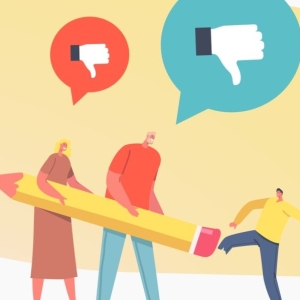
.png) Joseph Maliakan
Joseph Maliakan

Upholding the fundamental right to freedom of speech and ex
The stay will remain until the Bombay High Court decides on petitions challenging the 2023 amendments to the Information Technology rules.
A three-judge bench of the Supreme Court presided by the Chief Justice of India, D. Y. Chandrachud, in its order said: "We are of the considered view that the challenge pending before the High Court implicates core values impinging on the freedom of speech, which is protected by Article 19(1)(a). Since all the issues await the adjudication of the HC, we are desisting from expressing any opinion on merits which may ultimately have the impact of foreclosing a full and fair consideration by the third judge of the High court. We are of the view that the notification dated March 20 2024, after rejection of application of interim relief, needs to be stayed."
The SC Bench, also comprising Justices JB Pardiwala and Manoj Misra, said: "The challenge to the validity of 3(1)(b)(5) involves serious constitutional question and the impact of the rule on free speech and ex
The notification came after the Bombay High Court declined to restrain the Union government from notifying the FCU to purportedly identify fake news or misinformation related to the Union government. The petitions were filed by stand-up comedian Kunal Kamra, the Editors Guild of India, the News Broadcasters and Digital Association, and the Association of Indian Magazines. Against the Bombay High Court order, the petitioners moved to the Supreme Court.
The Ministry of Electronics and Information Technology (MEITY) notified the 2023 rules in April, further amending the IT Rules 2021. Under the new rules, if a fact-checking unit encounters or is informed of any posts that are "fake," "false," or "misleading" about the union government, they will be flagged to the social media intermediaries. The online intermediaries must remove such content to retain their "safe harbour" (legal immunity against third-party content).
A split verdict was delivered by the Division Bench of the Bombay High Court comprising Justices Gautam Patel and Neela Gokhale in January 2024. While Justice Patel agreed with the petitioners' contention and struck down the amendment to the IT rules, Justice Gokhale upheld the Union government's stand. It was then referred to a third judge. Justice A S Chandrurkar is yet to give his final order. After he refused to set up the FCU on March 11, the division bench on March 13, with a 2 to 1 majority, declined to stay FCU notification, forcing the petitioners to move to the Supreme Court.
On his January 31 verdict, Justice Gautam Patel pointed out, "The sinister and insidious facet to the impugned amendment is that this new agency has far more than loud bark: it has fangs and claws, for its unilateral view of what is or is not the 'truth' is accompanied by a requirement of removal of what it has so determined (to be fake, false or misleading)" and an intermediary can refuse it only on pain of losing statutory protector or "safe harbour". Taken together this has what they describe as a "chilling effect" on the right to freedom speech and freedom of the press.
The MEITY gazette notification said, "In exercise of the powers by ...the Information Technology (Intermediary Guidelines and Digital Media Ethics Code) Rules, 2021, the Union government hereby notified the Fact Check Unit under the Press Information Bureau of the Ministry of Information Broadcasting as the fact check unit of the Union Government..."
Consequently, when this unit flags content as fake, social media platforms must take it down as part of their due diligence requirement under the IT rules. Even internet and telecom service providers like Jio and Airtel also will have to access such information. The new rules could adversely affect opposition parties, media personnel, digital rights activists, and press associations. In fact, the Editors Guild of India described the regulations as "draconian".
In fact, Justice Patel had said in his order, "It is not the business of the government to keep citizens from falling into error. It is the other way around. Governments do not select citizens. Citizens elect governments." He had pointed out that there was no fundamental right to falsehood, fake news, or deep fakes. It was unthinkable that any entity could unilaterally identify the content as fake, false, or misleading, and the same "cannot be sole preserve of the government". Justice Patel said the argument that the government is "best placed to know the truth" about its affairs is equally true of every citizen and every entity.